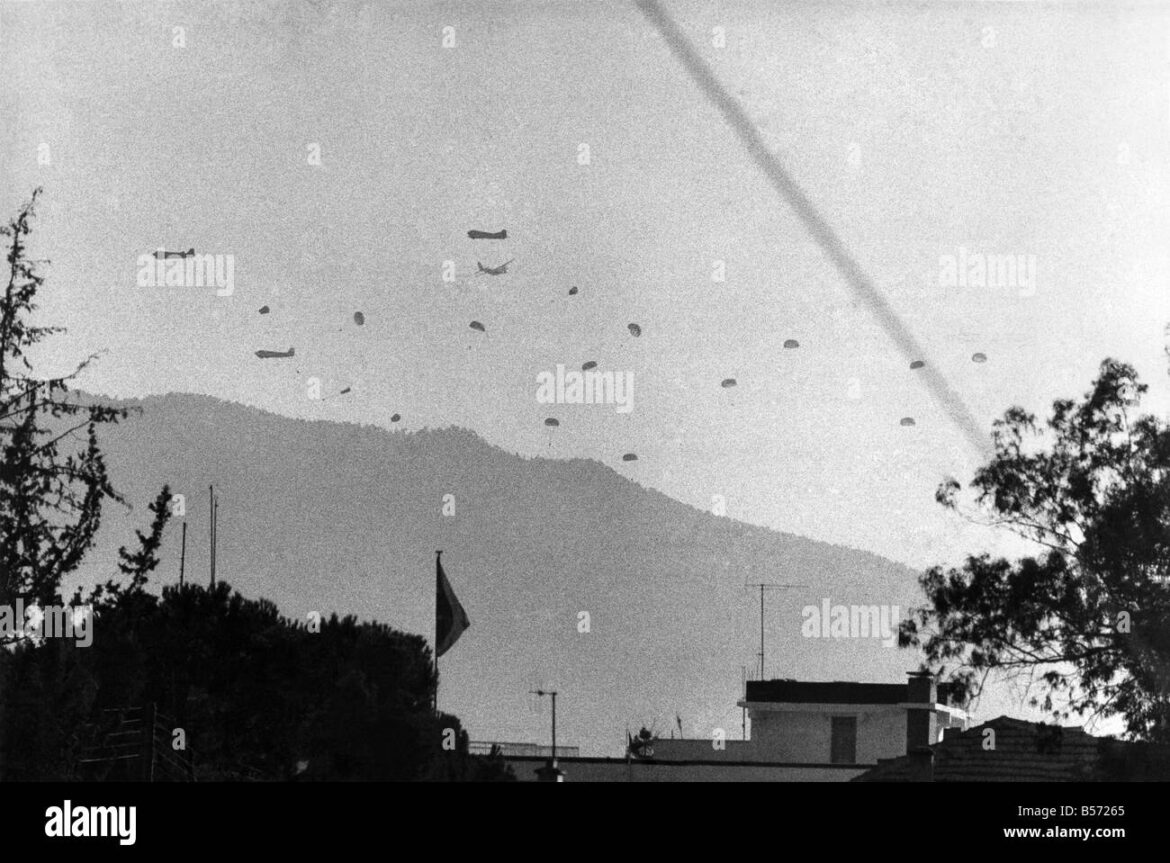In the annals of modern history, the Cyprus Conflict stands as a poignant testament to the interplay of national identity, geopolitical maneuvering, and the untold suffering of the innocents caught in the crossfire. The Turkish invasion of Cyprus in 1974 remains a pivotal episode, imbued with complex ramifications that reverberate through both political and religious spheres. This discussion seeks not only to chronicle the events of that tumultuous summer but also to reflect upon them through the prism of Christian ethics and morality.
At the heart of this narrative lies a backdrop rich in historical significance. Cyprus, an island strategically located in the eastern Mediterranean, has been a site of contention for centuries among various empires and nations. By the 20th century, the island’s political landscape had fallen under British colonial rule, creating tension among its Greek and Turkish communities, each staking their claim to Cypriot identity. The division of the populace can be traced to cultural, religious, and linguistic differences that stirred animosities and fueled desires for self-determination. Indeed, while Greek Cypriots predominantly adhered to the Orthodox Christian faith, Turkish Cypriots were largely Muslim, showcasing a cultural dichotomy that would later proliferate into overt hostilities.
The 1974 invasion was precipitated by a coup d’état, orchestrated by Greek Cypriot nationalists who sought union with Greece, a concept known as Enosis. This political maneuver brought instability and alarm among the Turkish Cypriots, who feared for their safety and future under a revised governance. With the support of the Greek military junta, the coup precipitated a crisis that echoed through the corridors of power in Ankara. As tensions escalated, Turkey, citing its obligations to protect the Turkish Cypriots, launched a military operation code-named Operation Attila on July 20, 1974.
The intervention marked the beginning of a protracted conflict that led to the occupation of the northern part of the island. Turkish troops landed on Cypriot soil, sparking fierce confrontations that resulted in countless casualties and the displacement of thousands from their homes. The invasion was both a military and humanitarian catastrophe, as families were torn apart and communities shattered. From a Christian perspective, the principles of peace, reconciliation, and charity are paramount. The conflict starkly contrasts these values, raising profound questions about the ethical implications of such a military intervention.
As the dust settled post-invasion, the island was effectively divided along the “Green Line,” a demarcation established by the United Nations Buffer Zone. In the years that followed, the political, cultural, and religious identity of the Cypriot people underwent seismic changes. A self-declared Turkish Republic of Northern Cyprus was established, recognized only by Turkey—a move that defied international consensus. The plight of displaced Greek Cypriots became a humanitarian crisis, with many denouncing their loss of property and heritage. These sufferings echo the biblical teachings on lamentation and justice, invoking the Christian call to advocate for the marginalized and to seek restoration where there is brokenness.
The conflict’s legacy extends beyond mere territorial disputes. It encompasses a deeper narrative of reconciliation and healing that is necessary for a long-lasting peace. In the wake of war, numerous Christian organizations have emerged, attempting to bridge the divide between Greek and Turkish Cypriots. Initiatives aimed at promoting dialogue and understanding reflect the Christian conviction of forgiveness, exemplifying Christ’s admonition to “love thy neighbor.” Grassroots movements emphasizing collaboration and cohabitation resonate with the broader Christian ethos of unity amidst diversity.
Moreover, the Cyprus Conflict represents a microcosm of larger global issues affecting Christians worldwide. In an era where ideological divisions continue to widen, the lessons from Cyprus beckon an examination of how faith narratives intersect with political realities. The ethical considerations surrounding the conflict pose questions about the responsibilities of Christian communities towards victims of war—how they can embody Christ-like compassion and servitude even amidst existential threats.
As contemporary discussions on the future of Cyprus swirl, it is imperative to incorporate a perspective grounded in Christian values. Calls for justice must be paired with a spirit of reconciliation. The aim should not merely be the resolution of the territorial dispute, but rather the establishment of enduring relationships among those who have suffered. Organizations advocating for peace and interfaith dialogue in Cyprus serve as beacons of hope, exemplifying a commitment to the common good amongst discordant communities.
In conclusion, the Turkish invasion of Cyprus serves as a powerful reminder of the fragility of peace and the resilience of the human spirit. When analyzed through a Christian lens, it becomes clear that the call for reconciliation is paramount—calling individuals not only to remember the past but also to actively engage in building a future marked by understanding, acceptance, and love. The path forward is fraught with challenges, yet it is paved with the hope that, guided by the principles of faith and genuine compassion, peace can blossom amidst the ruins of conflict.



